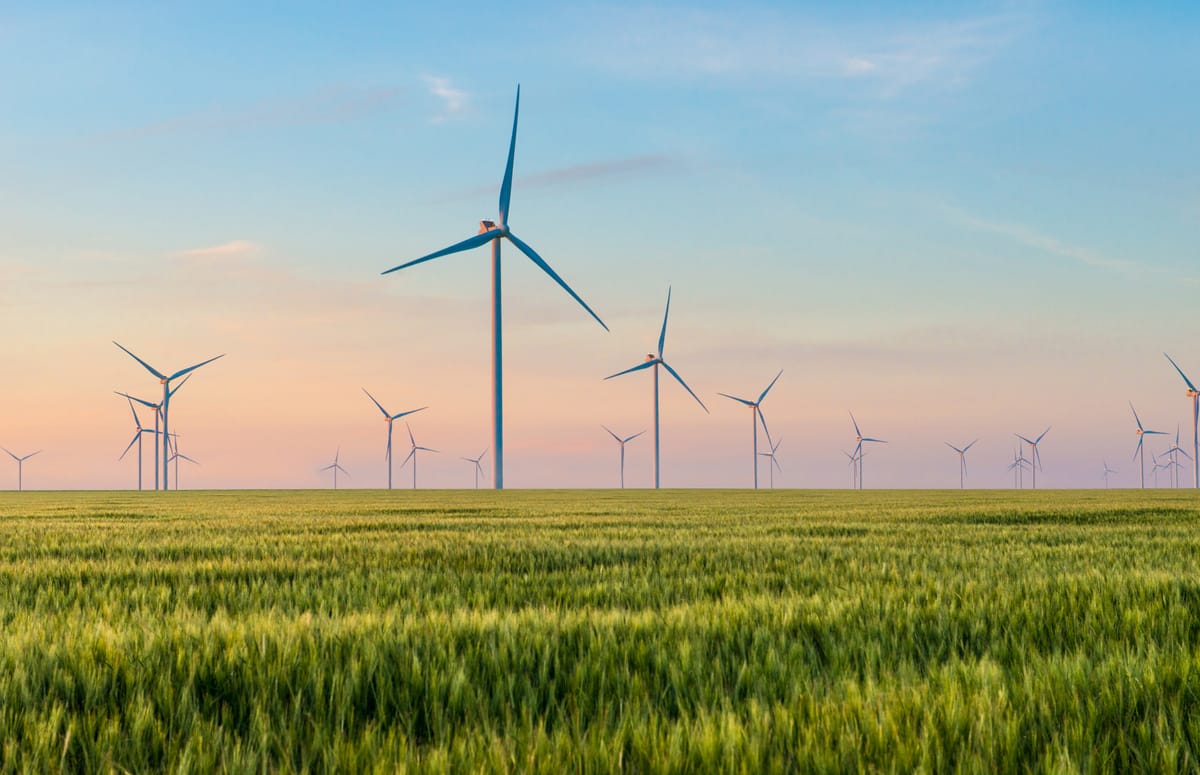In this week's brief, we examine a new milestone for cleantech investments, Denmark's efforts to cut emissions from agriculture, and startups that are embracing the ocean's capacity to capture carbon.
Cleantech investments hit $2 trillion: According to the International Energy Agency, global investment in clean technologies is set to hit $2 trillion this year. This amounts to nearly twice the total spent on fossil fuels but less than half the estimated $4.5 trillion needed annually by the early part of the next decade to achieve net zero goals. While this represents a significant scale of investments and there continues to be an embrace of renewable energy to replace fossil fuels, no major economy is yet on track to meet its 2030 emissions reduction targets and high interest rates are impacting the profitability of new renewable projects.
Volkswagen to invest up to $5 billion in Rivian: Volkswagen will invest up to $5 billion in the electric truck manufacturer Rivian, and cooperate on software for EVs. The partnership will provide Volkswagen with the critical technological capacity the company currently lacks, while Rivian will benefit from manufacturing expertise from the world's second-largest carmaker. It also provides the truck company, which has struggled to turn a profit, additional runway as it seeks to ramp up manufacturing at its factory in Illinois and launch a midsize S.U.V. called R2 that will retail for about $45,000.
Bill Gates calms concerns on AI energy usage and emissions: Bill Gates said the AI revolution will help propel the energy transition as data centers become more efficient and take a smaller share of future power demand than previously projected. The Microsoft founder, philanthropist, and climate investor said the technology might use as much as 6% of global electricity, up from the 2% today but shy of the 10% estimated by some. Gates also outlined the progress of climate investments by Breakthrough Energy, which has invested $2.2 billion in more than 160 startups since 2015. According to Gates, the surest bets were companies making existing systems more efficient, such as TS Conductor, which makes a lighter-weight power cable that can carry more electricity, and Aeroseal, which identifies and plugs leaks in heating and cooling systems.
Denmark to tax farm emissions and promote plant-based diets: Denmark will introduce one of the world's first carbon taxes on agriculture, charging farmers $43 per ton of CO2 emitted from 2030. The tax will double five years later but also reward farmers with high tax deductions. The move was inspired by an earlier, similar policy by New Zealand, which was delayed until 2030. Without intervention, the agriculture industry could account for as much as 46% of Denmark's emissions by the end of the decade. In a separate move, entrepreneurs in Denmark are nudging the nation to embrace more plant-based diets. Based in Copenhagen, the three-Michelin star restaurant Geranium went mostly meat-free in 2022, and while it faced pushback originally, it now has more customers than ever and earned a world's best restaurant award that year.
Malaysia looks to advance carbon tax while cutting fuel subsidies: Malaysia is working with the World Bank to seek a path towards removing most of its subsidies on fossil fuels and taxing carbon. The country will stop most of its subsidies on diesel this month and target gasoline next. The nation's finance ministry is leading government discussions on how to set up a carbon tax, tackle hard-to-abate sectors such as steel, and establish a regional grid between Southeast Asian countries.
Accelerating the ocean's carbon capture potential: The ocean absorbs 30% of the planet’s carbon emissions, and a group of startups are exploring electrochemical methods to enable it to soak up even more carbon dioxide. Equatic has partnered with Canadian carbon removal project developer Deep Sky on the first commercial-scale ocean-based CDR plan, aiming to remove 109,500 tonnes of carbon dioxide from the atmosphere at a price of less than $100 per tonne by 2030. Another startup called Vesta is adding 9,000 tons of sand mixed with the natural mineral olivine near the waters off North Carolina's Outer Banks. The startup helps replenish coasts that have been eroded, and as the sand dissolves in the water, it reduces ocean acidity and makes the ocean more carbon absorbent.
Fossil fuel companies slow their commitments to lower carbon: Over the past year, major oil companies have rolled back their commitments around lowering emissions. BP last year slowed the company's pace for reducing oil and gas production, Shell lowered its climate targets to expand its liquefied natural gas business, and ExxonMobil filed a lawsuit against activist shareholders pressuring the company to transition to greener operations. The backtrack reflects the concerns of corporate leaders and shareholders that companies cannot profitably embrace transition strategies at scale.
Coral scientists hope for hurricanes: Since the beginning of 2023, 72% of reefs around the world have experienced heat stress capable of bleaching — a process where coral shed their algae, which provide both color and food, as the water temperatures increase. Now, following the world's worst mass coral bleaching event, coral experts are hoping for tropical storms or hurricanes to bring thermal relief to the corals hit hardest in the Atlantic Ocean. As hurricanes suck up ocean heat, they leave cooler waters along their path and churn up pockets of cold water deeper in the ocean — cooling areas as far as 400 miles from the storm's center and providing relief to heat-stressed corals.
Scaling seaweed supply chains in the United States: In 2019, the United States produced just 0.01% of the world's seaweed. Entrepreneurs are working to scale the industry, helping fishermen diversify their income while growing a crop that has positive benefits for ocean health, including reducing ocean acidification and absorbing nutrients that can be harmful to marine life. Atlantic Sea Farms and their network of 40 farmers in Maine have harvested 1.3 million pounds of kelp so far this year, and after testing and treating it, the team incorporates it into food products sold at Whole Foods, Wegmans, and other large grocery chains.


